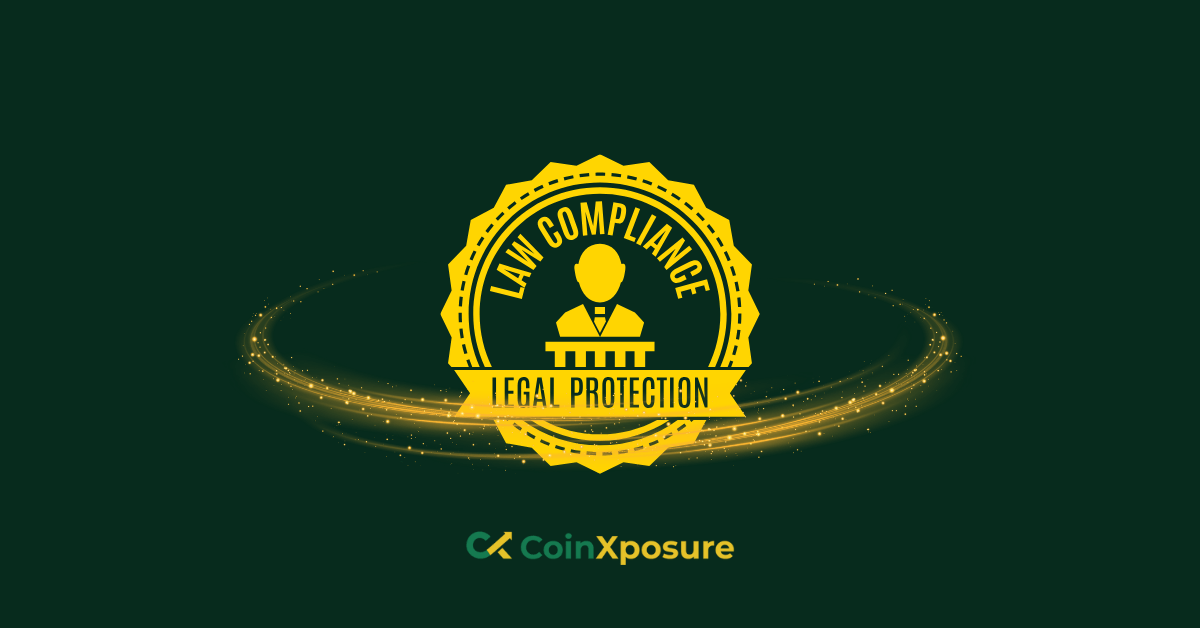With the emergence of Web3, the decentralized web powered by blockchain technology, the landscape of digital innovation is undergoing a paradigm shift.
As this transformative technology continues to disrupt traditional industries and pave the way for decentralized applications (dApps), the need for robust legal, ethical, and compliance frameworks becomes paramount.
Legal, ethical, and compliance roles in the Web3 career sphere are crucial in ensuring regulatory adherence, ethical practices, and risk mitigation within this rapidly evolving ecosystem.
From navigating complex regulatory landscapes to upholding principles of transparency and inclusivity, professionals in these roles are instrumental in shaping a sustainable and trustworthy Web3 environment.
This article sets the stage for exploring the multifaceted dimensions and growing significance of these roles in the dynamic world of Web3.
Legal Roles in Web3
Legal Roles in Web3 encompass navigating the complex regulatory landscape, protecting intellectual property rights, and ensuring the legality and enforceability of smart contracts. Key aspects include:
Regulatory Frameworks and Compliance
Understanding blockchain and cryptocurrency regulations.
Compliance with anti-money laundering (AML) and know your customer (KYC) laws.
Intellectual Property Protection
Safeguarding copyrights, trademarks, and patents in the digital sphere.
Conducting smart contract audits and legal reviews to protect intellectual property.
Contract Law and Dispute Resolution
Ensuring the legal validity of smart contracts.
Implementing effective dispute resolution mechanisms in decentralized systems.
Legal roles in Web3 are indispensable in navigating the intricate regulatory landscape, protecting intellectual property, and ensuring the enforceability of smart contracts.
As the decentralized web continues to evolve, professionals in these roles play a critical part in fostering trust, compliance, and legal certainty within the Web3 ecosystem.
Ethical Considerations in Web3
Ethical considerations in Web3 are essential for fostering trust, transparency, and inclusivity within decentralized systems. Key aspects include:
Transparency and Trust
Emphasizing open-source principles and community governance to ensure transparency in decision-making processes.
Upholding ethical data handling practices and prioritizing user privacy protection.
Decentralization and Inclusivity
Ensuring accessibility and equity within decentralized systems to prevent exclusionary practices.
Mitigating risks of centralization by promoting distributed governance models and decentralized ownership structures.
Environmental Impact
Implementing sustainable blockchain practices to minimize energy consumption and carbon footprint.
Developing strategies for carbon footprint reduction and environmental sustainability in Web3 infrastructure.
Ethical considerations in Web3 are vital for promoting fairness, accountability, and sustainability in the decentralized web, aligning technological advancements with ethical principles and societal values.
Compliance Roles in Web3
Compliance roles in Web3 are crucial for ensuring adherence to regulatory requirements, mitigating risks, and maintaining trust within decentralized systems. Key aspects include:
Regulatory Compliance
Monitoring and interpreting evolving regulations related to blockchain and cryptocurrency.
Implementing measures to ensure compliance with anti-money laundering (AML) and know your customer (KYC) laws.
Security and Risk Management
Developing and implementing cybersecurity measures to protect Web3 platforms and user data.
Conducting risk assessments and implementing mitigation strategies to address potential vulnerabilities.
Anti-Fraud Measures
Implementing fraud detection mechanisms to safeguard against fraudulent activities within decentralized systems.
Developing and enforcing fraud prevention policies to maintain integrity and trustworthiness.
Compliance roles in Web3 play a pivotal role in promoting regulatory adherence, mitigating risks, and safeguarding the integrity of decentralized platforms, contributing to a secure and trustworthy Web3 ecosystem.
Career Opportunities in Legal, Ethical, and Compliance Roles in Web3
Career opportunities in legal, ethical, and compliance roles within the Web3 ecosystem are diverse and rapidly expanding. Some of the key career paths include:
Legal Counsel for Blockchain Companies
Providing legal guidance on regulatory compliance, contract law, and intellectual property protection.
Drafting and reviewing smart contracts and navigating complex legal frameworks specific to blockchain technology.
Compliance Officer in Cryptocurrency Exchanges
Ensuring compliance with regulatory requirements, such as AML and KYC laws, and implementing effective compliance programs.
Conducting audits and risk assessments to identify and mitigate compliance risks within cryptocurrency exchanges.
Ethical Blockchain Consultant
Advising organizations on ethical considerations and best practices in blockchain implementation.
Developing strategies to promote transparency, inclusivity, and sustainability within decentralized systems.
Smart Contract Auditor
Conducting audits to assess the security, reliability, and legality of smart contracts.
Identifying and mitigating vulnerabilities to ensure the integrity and enforceability of smart contracts.
Regulatory Analyst for Web3 Projects
Monitoring regulatory developments and assessing their impact on Web3 projects and decentralized platforms.
Providing guidance on regulatory compliance and assisting with regulatory filings and reporting requirements.
These career opportunities offer professionals the chance to play a pivotal role in shaping the legal, ethical, and compliance landscape of the Web3 ecosystem, contributing to its integrity, sustainability, and growth.
Conclusion
Legal, ethical, and compliance roles are integral components of the rapidly evolving Web3 ecosystem.
Professionals in these fields play a crucial role in navigating complex regulatory landscapes, protecting intellectual property, promoting transparency and inclusivity, and ensuring adherence to ethical principles within decentralized systems.
As the Web3 space continues to expand and innovate, the demand for skilled professionals in legal, ethical, and compliance roles will only continue to grow.
By embracing these roles, individuals have the opportunity to contribute to the development of a more secure, trustworthy, and sustainable Web3 environment, fostering innovation while upholding ethical standards and regulatory compliance.
As such, the importance of these roles cannot be overstated in shaping the future of decentralized technologies and promoting responsible and ethical use of blockchain and cryptocurrency












